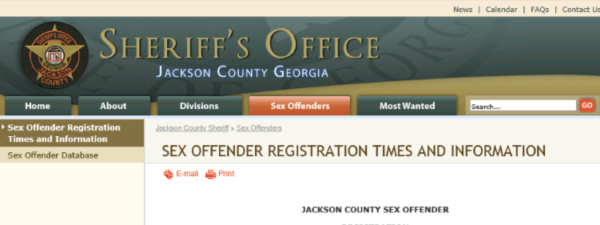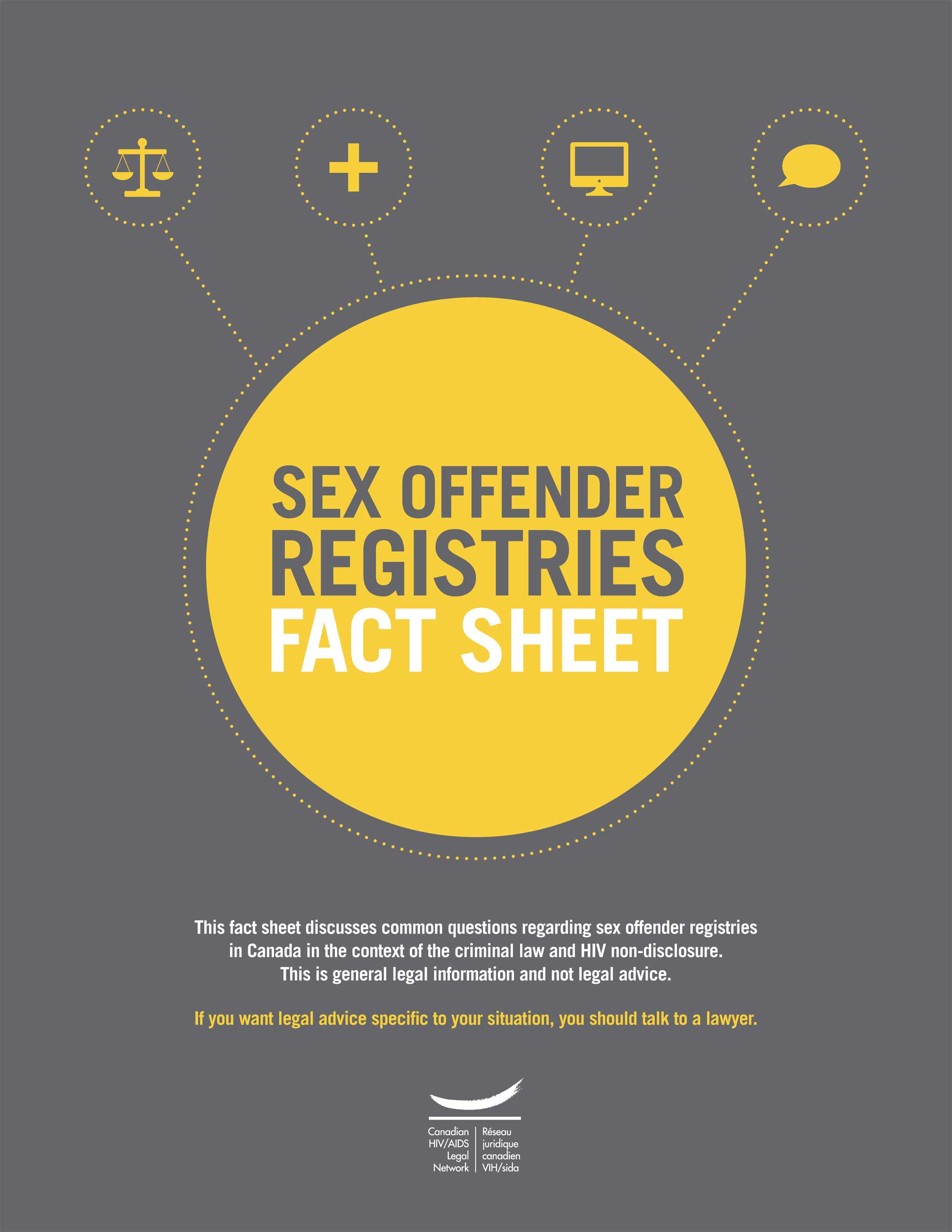Understanding Sex Offender Registries and Their Importance in Georgia
Related Articles: Understanding Sex Offender Registries and Their Importance in Georgia
Introduction
With enthusiasm, let’s navigate through the intriguing topic related to Understanding Sex Offender Registries and Their Importance in Georgia. Let’s weave interesting information and offer fresh perspectives to the readers.
Table of Content
- 1 Related Articles: Understanding Sex Offender Registries and Their Importance in Georgia
- 2 Introduction
- 3 Understanding Sex Offender Registries and Their Importance in Georgia
- 3.1 What is a Sex Offender Registry?
- 3.2 The Purpose and Importance of Sex Offender Registries
- 3.3 Understanding Georgia’s Sex Offender Registry
- 3.4 Accessing Georgia’s Sex Offender Registry
- 3.5 The Importance of Responsible Use
- 3.6 Frequently Asked Questions (FAQs) about Georgia’s Sex Offender Registry
- 3.7 Tips for Using Georgia’s Sex Offender Registry
- 3.8 Conclusion
- 4 Closure
Understanding Sex Offender Registries and Their Importance in Georgia

The concept of sex offender registries has become a cornerstone of public safety measures in the United States, including Georgia. These registries serve as a vital tool for communities to access information about individuals convicted of sex offenses, enabling informed decision-making regarding personal safety and community well-being. This article provides a comprehensive overview of Georgia’s sex offender registry, its purpose, functionalities, and the critical role it plays in public safety.
What is a Sex Offender Registry?
A sex offender registry is a publicly accessible database containing information about individuals convicted of specific sex offenses. These registries are maintained by state governments and often include details such as:
- Personal Information: Name, date of birth, address, and physical description.
- Offense Details: Nature of the offense, date of conviction, and the victim’s age.
- Registration Requirements: Details about the offender’s registration status, including their required reporting obligations.
- Photographs: In some cases, registries may include photographs of the offender.
The Purpose and Importance of Sex Offender Registries
The primary purpose of sex offender registries is to enhance public safety by providing transparency and access to information about individuals who have committed sex offenses. These registries serve several critical functions:
- Community Awareness: By making information readily available, registries empower communities to be aware of potential risks and take appropriate precautions.
- Deterrence: The knowledge that their information is publicly accessible may deter offenders from re-offending.
- Victim Protection: Registries can assist victims in understanding the potential risks posed by offenders and seeking appropriate support.
- Law Enforcement: These registries provide valuable tools for law enforcement agencies to investigate potential crimes and locate offenders.
Understanding Georgia’s Sex Offender Registry
Georgia’s sex offender registry is maintained by the Georgia Bureau of Investigation (GBI) and is accessible to the public through the GBI’s website. The registry contains detailed information about individuals convicted of sex offenses in Georgia, including:
- Offender Information: Name, address, date of birth, physical description, and offense details.
- Registration Status: Indicates whether the offender is currently registered in Georgia and their required reporting obligations.
- Maps and Search Tools: The website provides interactive maps and search tools to locate registered offenders in specific areas.
- Contact Information: The GBI website also provides contact information for reporting potential violations or seeking further information.
Accessing Georgia’s Sex Offender Registry
Accessing Georgia’s sex offender registry is straightforward. The GBI website provides a user-friendly interface with multiple search options, including:
- Name Search: Enter the offender’s full name or partial name.
- Address Search: Enter a specific address or zip code to find registered offenders in that area.
- Map Search: Use the interactive map to locate registered offenders within a specific radius.
The Importance of Responsible Use
While sex offender registries are valuable tools for public safety, it is crucial to use them responsibly.
- Avoid Misuse: The registry should not be used to harass or discriminate against individuals.
- Accuracy and Updates: Remember that information on the registry may not always be completely up-to-date, and it is essential to rely on official sources for the most accurate information.
- Contextual Understanding: It is important to understand that not all sex offenses are equal in severity, and the registry should not be used to make assumptions about an individual’s future behavior.
Frequently Asked Questions (FAQs) about Georgia’s Sex Offender Registry
1. What offenses are included in the Georgia sex offender registry?
The Georgia sex offender registry includes individuals convicted of a wide range of sex offenses, including:
- Rape: Sexual intercourse without consent.
- Child Molestation: Sexual contact with a minor.
- Aggravated Child Molestation: Child molestation with aggravated circumstances.
- Sexual Battery: Intentional sexual contact without consent.
- Incest: Sexual intercourse between individuals who are closely related.
- Prostitution: Engaging in sexual activity for money.
- Child Exploitation: Production, distribution, or possession of child pornography.
2. How often do offenders have to update their information?
Offenders are required to update their information with the GBI on a regular basis, usually annually. The specific reporting requirements vary depending on the nature of the offense and the offender’s risk level.
3. Can I report a potential violation of the sex offender registry?
Yes, you can report any suspected violation of the sex offender registry to the GBI. The GBI website provides contact information for reporting violations.
4. What are the consequences for failing to register as a sex offender?
Failing to register as a sex offender in Georgia is a serious crime with severe consequences, including imprisonment and fines.
5. Can I remove my name from the sex offender registry?
In most cases, removing your name from the sex offender registry is not possible. However, some individuals may be eligible for a petition to have their information removed after a certain period of time, depending on the nature of the offense and their compliance with the registry requirements.
Tips for Using Georgia’s Sex Offender Registry
- Verify Information: Always cross-check information from the registry with official sources.
- Understand Risk Levels: The registry often includes risk levels assigned to offenders, which can provide valuable insights into potential risks.
- Be Aware of Limitations: Remember that the registry is a snapshot in time, and information may not be entirely accurate or up-to-date.
- Seek Professional Advice: If you have specific concerns about an individual or need guidance on navigating the registry, seek advice from law enforcement or a legal professional.
Conclusion
Georgia’s sex offender registry is a valuable resource for public safety, providing communities with access to vital information about individuals convicted of sex offenses. By understanding the purpose, functionalities, and limitations of the registry, individuals can utilize this tool responsibly and effectively to enhance their personal safety and community well-being. It is essential to remember that the registry is a tool for awareness, not for judgment or discrimination. Responsible use and a focus on protecting vulnerable populations are key to maximizing the benefits of this important public safety resource.






Closure
Thus, we hope this article has provided valuable insights into Understanding Sex Offender Registries and Their Importance in Georgia. We appreciate your attention to our article. See you in our next article!